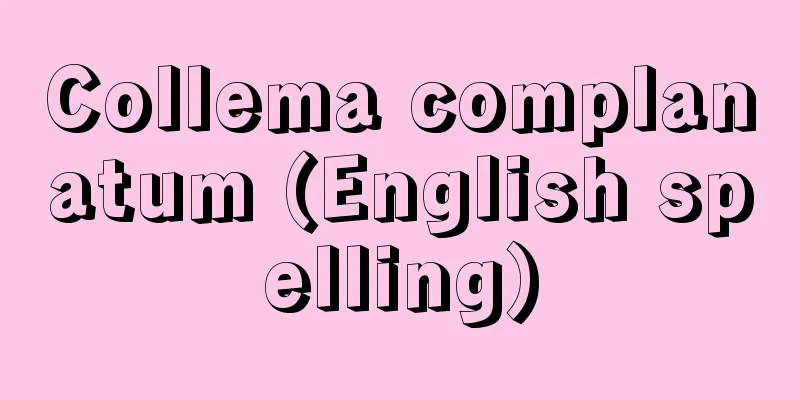Ookunitama Shrine - Ookunitama Shrine

|
Located in Miyamachi, Fuchu City, Tokyo. In addition to Musashi-Okunitama-Okami, the spirit of the land of Musashi Province (Tokyo, Saitama Prefecture, and eastern Kanagawa Prefecture), the shrine enshrines Ono-Okami, Ogawa-Okami, Hikawa-Okami, Chichibu-Okami, Kanasana-Okami, and Sugiyama-Okami, which are major shrines in Japan. The founding date is unknown. According to the shrine's legend, it was founded by divine oracle during the reign of Emperor Keiko, and it is said that Minamoto no Yoriyoshi and Yoshiie, father and son, prayed at the main shrine on their way to conquer Abe no Yoritoki, father and son, and planted the zelkova trees that remain today in 1062 (Kōhei 5) as a testimony of their pacification on the way back. In the late ancient period, as an influential shrine close to the provincial capital of Musashi Province, it was invited to enshrine shrines within the country, and was known as Musashi Province Sosha or Rokusho-gu. It was also deeply revered by the Genji clan and other military commanders, and during the Edo period it was given 500 koku of red seal land. Under the Meiji system, it was designated a small shrine by the government. Its annual festival on May 5th is famous for being called the Kurayami Matsuri (Dark Night Festival) because the lights are turned off when eight mikoshi (portable shrines) are carried out at night. There are also many other special Shinto rituals performed in ancient times, such as the Misogiharaishiki (purification ceremony at sea) held on April 30th at Shinagawa. One pair of komainu (guardian lion dogs) is a designated Important Cultural Property of the country. [Junichi Kamata] Source: Shogakukan Encyclopedia Nipponica About Encyclopedia Nipponica Information | Legend |
|
東京都府中市宮町に鎮座。武蔵(むさし)国(東京都、埼玉県、神奈川県の東部)の土地の魂である武蔵大国魂大神(おおかみ)のほか、国内有力神社の小野(おのの)大神、小河(おがわ)大神、氷川(ひかわ)大神、秩父(ちちぶ)大神、金佐奈(かなさな)大神、杉山大神などを祀(まつ)る。創建年代不詳。社伝では景行(けいこう)天皇のとき、神託により創建と伝え、また源頼義(よりよし)・義家(よしいえ)父子が安倍頼時(あべのよりとき)父子征伐の途次、本社に祈願、1062年(康平5)平定の帰途報賽(ほうさい)のため植えたのが、現在に残る欅(けやき)並木と伝える。古代末期、武蔵国の国府に近い有力神社として、国内神社を勧請(かんじょう)されたことで、武蔵国総社、また六所宮とよばれた。源氏以下武将の崇敬も厚く、江戸時代に朱印領500石を寄せられた。明治の制で官幣小社。5月5日の例祭は、夜間8基の神輿(みこし)渡御のとき、灯火を消して行ったので闇夜祭(くらやみまつり)とよばれて有名である。他に4月30日の品川海上禊祓式(みそぎはらいしき)など古式による特殊神事が多い。狛犬(こまいぬ)1対は国指定重要文化財である。 [鎌田純一] 出典 小学館 日本大百科全書(ニッポニカ)日本大百科全書(ニッポニカ)について 情報 | 凡例 |
Recommend
Oiso Hills
Also known as the Yurugi Hills. A hill in the sout...
Muscarinic receptor
...Because the symptoms of muscarine poisoning ar...
Yoshio Kodama
Right-wing activist. Born in Motomiya Town, Fukus...
Melchizedek
A priestly king of Salem in the patriarchal period...
Lazzaro Spallanzani
Italian biologist. Born in Scandiano. He studied ...
Midgard
…Until the early Middle Ages, people lived in sma...
ego
…That is why, except for anthropomorphic expressi...
Kiba
[1] [noun] A lumberyard established in large citie...
Henri Fayol
1841‐1925 A French business manager who is conside...
Gramawārī (English spelling) Gramawari
…the system of taxation implemented by the Britis...
Early planting cultivation - Hayauesaibai
This is a cultivation method in which crops are tr...
Hockey - hockey (English spelling)
A type of ball game. It is an official Olympic ev...
Iinuma
One of the surnames. Source: The Selected Edition ...
Heiryo
A prefecture-level city in the eastern part of Ga...
Collin (English spelling) Louis-Joseph-Raphaël Collin
French painter. Born in Paris, he studied under W...









